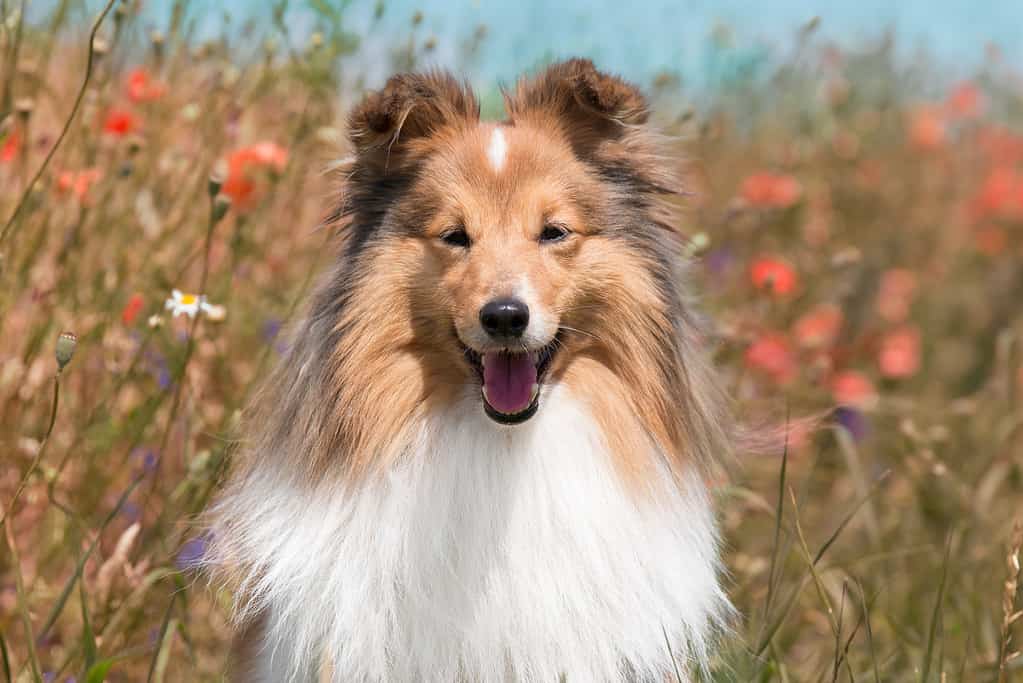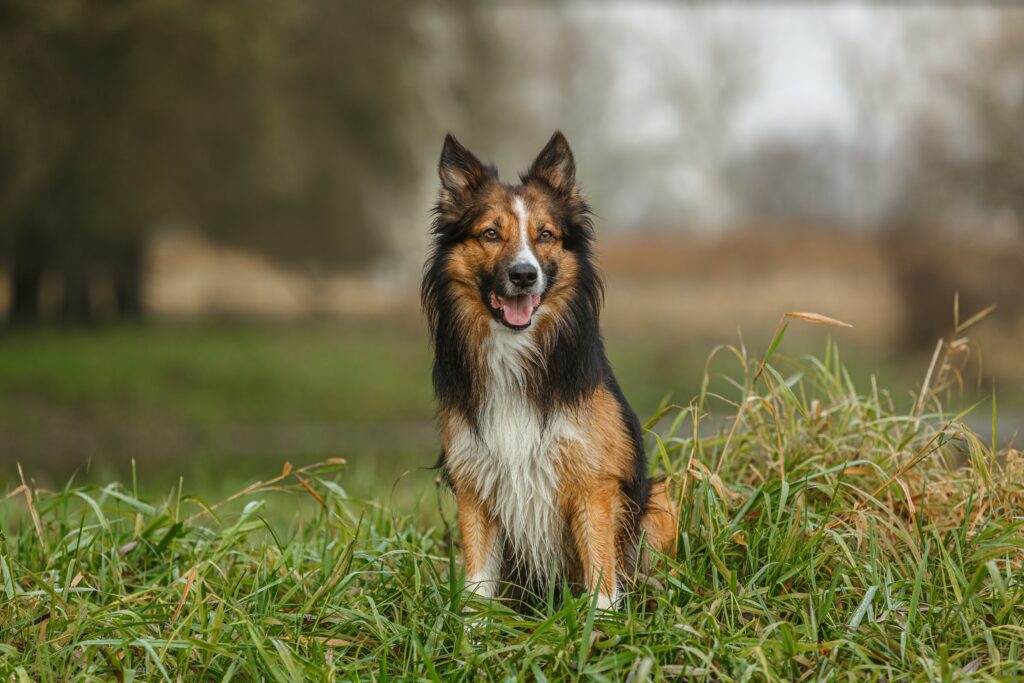Collies are fantastic dogs that are becoming more and more popular. Thousands of families in America have collies because they are playful, smart, and affectionate. It’s relatively easy to train a collie, and, overall, they’re a wonderful addition to any family’s life.
The differences between sexes in collies are incredibly minor. While there are a few small patterns that show up, most are more anecdotal. Male and female collies are both brilliant dogs, and their differences can be as different within their sex than between the sexes. So, with that in mind, it’s important to do your research and meet potential puppies prior to adoption. They will all have their own unique behaviors, so meeting the pups can help give you insight into their behavior.
Collies, regardless of their sex, are lovely dogs. People enjoy having collies because of their friendly and loving nature. Again, all things considered, the differences between males and females are pretty tiny. Before you bring a new pup home, take the time to get to know its own attachment, aggression, and temperament styles. That’ll give you the best possible insight you can have prior to adopting your new dog.
There are five key differences between male and female collies: size, attachment, aggression, medical issues, and reproductive procedures. Here is some insight into each trait’s differences between sexes.
| Trait | Male Collies | Female Collies |
|---|---|---|
| Size | 75-110 lbs, 25-32 inches | 70-100 lbs, 24-31 inches |
| Attachment | More attached | Less attached |
| Aggression | More aggressive | Less aggressive |
| Medical Issues | More prone to hip dysplasia and some types of cancers | Can develop uterine and cervical cancer |
| Reproductive Procedures | Neuter | Spay |
Male vs Female Collie: Size

Collies can be shorthaired or longhaired!
©Lidia Belyaeva/iStock via Getty Images
The collie, in general, is a great large dog. They do well with families and can be an easy addition to a home because they aren’t too small or too large. There are some slight differences between the size of male and female collies, though it’s not significant.
Like many mammals, there are some size differences between male and female collies. Depending on the breed of dog, it’s very common for males to be larger than females. In collies, the difference is only slight. Male collies are typically between 25-32 inches in height, whereas female collies range between 24-31 inches. So it’s clear that, while females are generally slightly shorter, there is also a huge overlap between the potential heights of different collies.
The same rings true when it comes to weight. Male collies generally weigh slightly more than female collies. Healthy males will weigh somewhere between 75-110 pounds, while female collies will weigh between 70-100 pounds. Such is the case with height, females and males have a large overlap within the spectrums. So a female could weigh 85 pounds while a male weighs 75 pounds, for example. Females, however, do trend slightly lighter while males generally trend slightly heavier. Again, for standard collies, the weight differences between the sexes remain, but both males and females are about thirty pounds heavier than their collie counterparts.
Male vs Female Collie: Attachment
One key difference between male and female collies relates to attachment. In general, the breed is thought to be one extreme or the other. Either the collie is extremely attention-loving with strong attachment, or the collie is more independent with attachment to only one key person. While it’s possible for both sexes of dogs to have either style of attachment, there do seem to be some slight sex-based differences.
Male collies are, to a small extent, more likely to be attention-lovers. This means they will appreciate all the love, pats, and playtime they can get. They can sometimes be overly clingy, demonstrating a love that is exceptionally present. Female collies are, at times, more likely to be independent. They will likely select one person who is their human and bond with them, but they’re generally less clingy.
One other thing related to attachment is timing. Male collies can be more open to new families, whereas females may be more reserved at first. Again, while the breed in general is playful and loving, this difference is fairly minute. However, if you adopt a female collie, you may want to allow her to take more time to develop loyalty and attachment to her new family. Males are a little more trusting, joining the family right away.
Male vs Female Collie: Aggression

Border collies
are related to collies. They’re similar in many ways, though they are smaller.
©Annabell Gsoedl/Shutterstock.com
Let’s make this clear: collies are not known to be aggressive dogs. However, all dogs, regardless of their breeds, can display some aggressive characteristics. Collies are fantastic family dogs, generally totally safe to have around children, so these are only slight trends between the sexes of collies.
Male collies can, at times, demonstrate a little bit more aggression than females. This relates primarily to their general temperament. Male collies are more excitable and more loyal, making them more likely to demonstrate territorial behaviors. However, if the male collie is neutered, this behavior becomes much less common. Neutered dogs don’t exhibit as many marking behaviors as unneutered dogs.
Female collies, on the other hand, are thought to be a bit more moody. Particularly unspayed female collies can demonstrate some pretty intense mood swings, meaning at times they will be grumpy and desire to be left alone. They’re a little less playful than male collies, which means that if your young children want to play, the females may be less responsive to it than males. So it’s important to consider the ages and interests of the members of your household before choosing the right puppy for you! However, again, both sexes do not regularly exhibit any sort of aggressive behavior.
Male vs Female Collie: Medical Issues
There are a couple of key differences between male and female collies as it relates to medical issues. Collies, in general, are healthy dogs, but there are a few common conditions with slight sex-based preferences. As a breed, collies are somewhat prone to hip dysplasia, which is a normal condition that shows up in large dogs. Collies get hip dysplasia less than many other large dog breeds, but male collies show hip dysplasia more commonly than females.
Both male and female collies are prone to some types of cancers, but they often get different ones. For example, males can suffer from testicular cancer, whereas female collies can get uterine and cervical cancer. As is the case for all dogs, it’s important to take regular visits to the veterinarian to ensure your pet is happy and healthy. The earlier these conditions are identified, the safer your pup is.
Male vs Female Collie: Reproductive Procedures

Regardless of the sex or breed of dog you adopt, be sure to take them to regular veterinary check-ups!
©didesign021/Shutterstock.com
One major difference between male and female dogs of any breed is the standard reproductive procedures they will receive. Male dogs, including collies, should get neutered if they are not being raised to be bred. Female dogs, on the other hand, need to get spayed. Both of these procedures are standard and can be done at most veterinary facilities. Keep in mind that spaying can be slightly more expensive than neutering, so you’ll want to consider the additional expense.
If you choose to use your pup for breeding, you will notice some unique sex-based behaviors. Male collies will be more territorial, while female collies will be more moody. Females go into heat twice a year, and in those times, their hormone shifts can be intense. So expect to see some sex-based behavioral differences if you choose to keep your dog unspayed or unneutered. However, remember that if you do not intend to breed your pup, it is recommended that you spay or neuter them.
Conclusion
Overall, the male and female collie are extremely similar. Depending on the needs and desires of your family, one sex may be a better fit than the other. However, do your research and learn about the specific dog you intend to bring home. Each dog, regardless of gender, has their own personality, attachment, and aggression styles, so you’ll want to take the time to make sure you’re adopting a dog that’s a good fit!
The photo featured at the top of this post is © Zuzule/Shutterstock.com
Ready to discover the top 10 cutest dog breeds in the entire world?
How about the fastest dogs, the largest dogs and those that are -- quite frankly -- just the kindest dogs on the planet? Each day, AZ Animals sends out lists just like this to our thousands of email subscribers. And the best part? It's FREE. Join today by entering your email below.
Thank you for reading! Have some feedback for us? Contact the AZ Animals editorial team.







